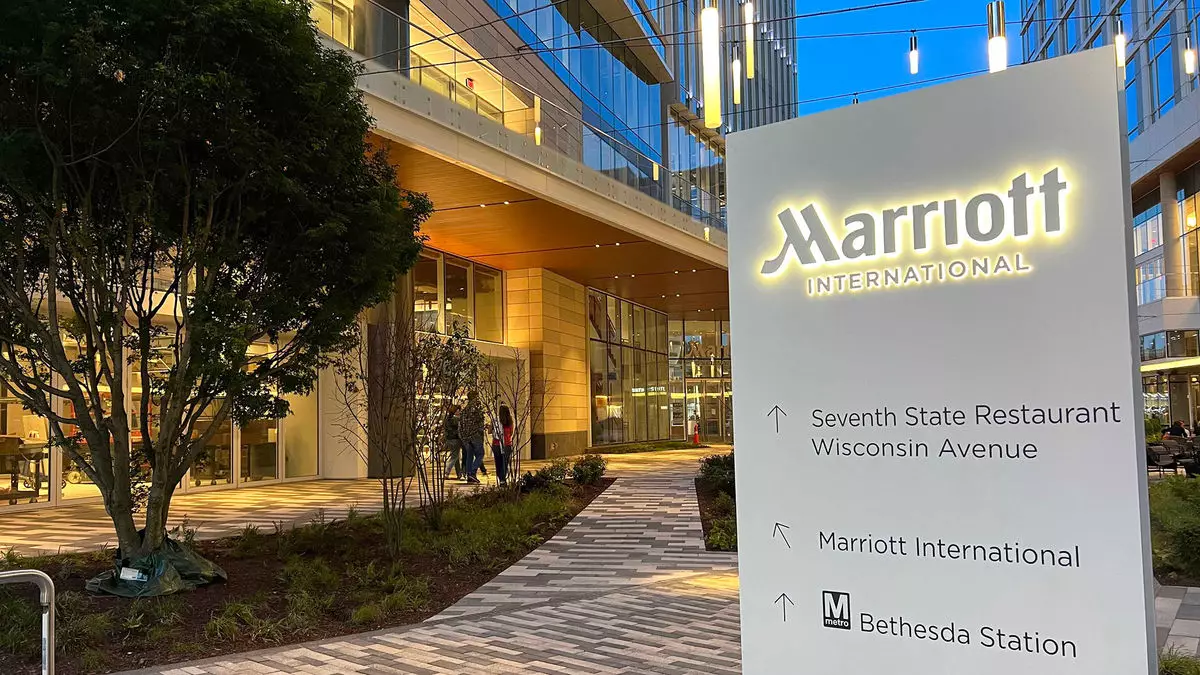In the dynamic world of hospitality, Marriott International has been at the forefront of navigating economic uncertainties while leveraging opportunities for growth. As revealed during the company’s Q4 earnings call, the discussions encompassed not only performance outcomes but also strategic responses to macroeconomic factors, particularly the influence of inbound travel from neighboring countries like Canada and Mexico.
During the recent earnings call, CFO Leeny Oberg offered a nuanced perspective on potential risks tied to U.S.-Canada and U.S.-Mexico relations, specifically amid changing tariffs and trade policies under the Trump administration. The concern stems from a political backdrop that has yielded economic tensions, impacting cross-border travel. Despite these strains, Oberg expressed confidence, stating that Canadian and Mexican travelers account for a minimal fraction—roughly 1% to 2% of room nights—within Marriott’s overall U.S. business. This assertion is particularly critical given the U.S. Travel Association’s estimates, which suggest a hypothetical 10% reduction in Canadian visits could equate to a striking loss of 2 million arrivals and $2.1 billion in revenue.
This situation highlights how global economic policies directly affect consumer behavior and the hospitality sector’s recovery trajectories. The resistance shown by Canadian citizens, who called for local tourism in response to U.S. tariffs, underscores the nuanced interplay between policy, sentiment, and market activity.
Despite the clouds of uncertainty, Marriott reported a notably strong performance in the fourth quarter, with a rise in global revenue per available room (RevPAR) by 5%. This growth was driven by a combination of a 3% increase in average daily rates and an uptick in occupancy rates. CEO Anthony Capuano articulated that demand prevailed even amidst the looming uncertainties of the U.S. presidential election, indicating resilience within domestic travel sentiment.
Marriott’s approach exemplifies a broader industry trend where hospitality companies adapt to changing demands and capitalize on peak periods. By effectively responding to market conditions, they could mitigate risks brought about by fluctuating international travel dynamics.
Looking into the future, Marriott’s ambitious plans signal a commitment to a “multi-year digital transformation” strategy aimed at enhancing operational efficiencies and guest experiences. Oberg highlighted the company’s strategic allocation of resources toward technological upgrades, focusing primarily on property management, reservations, and loyalty systems that will streamline operations across various guest services. This direction aligns with a broader industry shift toward digitization, presenting an opportunity for Marriott to leverage technology as a means of differentiation in a saturated market.
Capuano emphasized the importance of enhancing the ease with which diverse services—beyond traditional room bookings—are accessed by guests. As the hospitality environment grows more competitive, the ability to provide a seamless customer experience tailored to their diverse needs could yield significant revenue benefits for mile-marketing owners post-transformation.
Marriott is also directing substantial investments toward its owned and leased properties, particularly through the renovation of its Elegant Hotels resorts in Barbados. Since acquiring this portfolio in 2020, Marriott has already begun executing various improvements, with the bulk of renovations expected to conclude by 2025. Oberg underscored the potential for these revamped properties to align with long-term contractual arrangements post-renovation, underlining a strategy focused on value maximization.
This pivot toward enhancing real estate quality indicates Marriott’s dedication to operational excellence and increasing asset valuation, thereby wooing investors keen on the burgeoning all-inclusive market. Capuano’s remarks about the rising investor interest portray a bright outlook for upcoming sell-offs once renovations are completed.
Marriott International stands at a critical juncture as it navigates potential market challenges while capitalizing on growth opportunities through targeted investments and digital initiatives. With a constant eye on evolving economic landscapes and consumer preferences, the company’s strategic direction underscores a commitment to resilience and adaptability in the face of uncertainty. Overall, Marriott appears well-positioned to enhance its market share, sustain revenue growth, and emerge stronger from the ongoing economic fluctuations.

